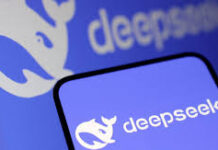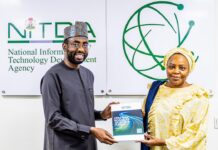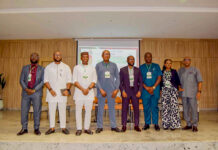Internet’s Gift of Connection and Curse of Division
By Fatimah Yusuf Usman,
We live in the most connected age in human history. In just seconds, I can send a message across continents, join a community of like-minded people, or even attend a book club without leaving my room. The internet has shrunk the world into a global village.
Yet sometimes I wonder—has this closeness truly brought us together, or has it quietly pushed us further apart? On one hand, the internet has been a lifeline. Families scattered across countries can stay in touch with ease. A student in rural Nigeria can now take a course taught by a Harvard professor.
Friendships blossom across cultures, time zones, and languages. I have seen how online platforms give people the courage to speak up, find solidarity, and even heal in ways they could not offline. For many, the internet has not just been a tool, but a bridge.
But that bridge often feels shaky. For every story of connection, there is another of division. The internet has also become a megaphone for hate, disdain, and cruelty. Anonymity provides a mask—one that emboldens people to say things they would never dare in person.
Behind the safety of a screen, kindness too often gives way to insults, empathy to hostility. We scroll through timelines filled with rage, and it makes us wonder: are we truly more connected, or just more exposed to the worst sides of each other?
The truth is, the internet did not invent hate—it only amplified it. Prejudice, anger, and division have always existed. What has changed is visibility. Where once gossip or bias might remain in private circles, it now spills online for millions to witness.
Some argue this is progress, exposing ugly truths so they can be confronted. Others believe it only deepens divides, leaving us exhausted and distrustful.
For many, the internet is both the closest they will ever feel and the most vulnerable. During the lockdowns, students who felt disconnected found comfort in virtual voices. Communities devastated by crisis discovered organizing power online, as seen with #EndSARS and other movements. Social media does not just connect; it activates.
And then there are the communities it nurtures. Online spaces can be deeply empowering. I think of women’s collectives, social clubs, and support groups that give people belonging they never had offline.
But the same internet also breeds echo chambers—spaces where people only hear from those who agree with them, fueling polarization. Are we really closer, or just huddled tighter in smaller tribes, losing sight of our shared humanity?
We must do better.
– Digital literacy must be a priority. If more users learn to critically evaluate what they read, apply empathy, and recognize harmful speech, we can reduce the damage.
– Stronger moderation is essential. Platforms like Facebook, X, and WhatsApp must enforce community standards. Slurs and hate speech disguised as opinion cannot be allowed to fester.
– Inclusivity in policymaking is key. Laws and regulations on online content must include the voices of women, young people, and marginalized communities who feel the weight of online division the most.
– Promoting kindness matters. Stories of helpfulness, supportive communities, and constructive dialogue deserve as much attention as outrage and shock.
The generational divide also stands out. Many in older generations see the internet as the death of “real” relationships, while younger ones view it as liberation—where they can learn, work, and care for their mental health without shame. Perhaps the truth lies somewhere in between: the internet has not redefined closeness, it has diversified it.
Where does that leave us? With choice. The internet is a mirror—it reflects us. If hate spreads quickly, so can kindness. If misinformation thrives, so can truth. But this requires intentionality: digital literacy, empathy, and a conscious effort to balance online life with real-world connection.
The paradox remains. The internet has shrunk the world, but whether it unites or divides us depends on what we amplify. Maybe the internet has not changed who we are—it has only made us louder. The real question is: what do we want to echo?
Fatimah Yusuf Usman writes from PRNigeria Centre, Abuja. She can be reached via: [email protected].
















